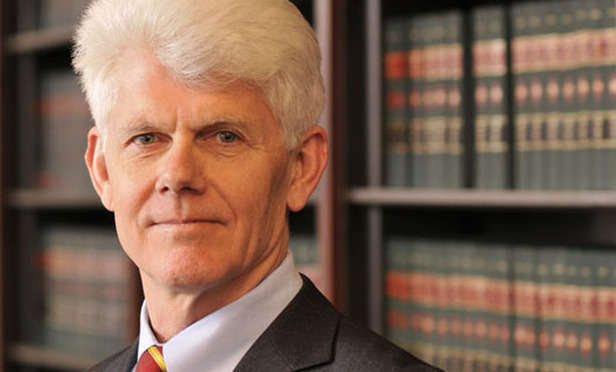Thomas F Gleason

June 14, 2019 | New York Law Journal
Use of Depositions to Meet Plaintiff's Burden of Proof at TrialAsbestos personal injury claims often are brought many years after the harmful exposure, so it is not surprising that plaintiffs sometimes seek to prove the source of the asbestos through testimony from past cases. CPLR 3117(a)(3) allows use of prior deposition testimony under stated circumstances. In his New York Practice columns, Thomas F. Gleason discusses a recent appeal decided by a divided Third Department in which the majority and dissenters address nuances in such permitted use.
By Thomas F. Gleason
8 minute read

January 16, 2019 | New York Law Journal
The Power of Administrative Agencies and the Peril of Substantial Evidence ReviewIn his New York Practice column, Thomas F. Gleason writes: The scope of deference to administrative agencies was recently treated by a divided panel of the Appellate Division, Third Department, whose decision in an Article 78 substantial evidence proceeding was reversed by a divided Court of Appeals in 'Matter of Haug v. State University of N.Y. at Potsdam'. The disturbing facts and the review standard make compelling reading—and not just for lawyers.
By Thomas F. Gleason
7 minute read

May 22, 2018 | New York Law Journal
New York Lawyers Currently Need a New York Office—An Unnecessary Licensing Restriction?In his New York Practice column, Thomas F. Gleason discusses Schoenfeld v. New York, which challenges the statute that a person admitted to practice law in New York must have a physical office there.
By Thomas F. Gleason
7 minute read

January 17, 2018 | New York Law Journal
The Balance in Testimonial PrivilegesIn his New York Practice column, Thomas F. Gleason discusses 'Ambac Assurance v. Countrywide Home Loans', which provides an informative history of the attorney-client privilege, including the evolution of the “joint defense” doctrine.
By Thomas F. Gleason
8 minute read

September 15, 2017 | New York Law Journal
Pre-Judgement Interest and Stipulations of Liability Under CPLR 5002In his New York Practice column, Thomas F. Gleason writes: CPLR 5002 allows for interest to accrue after a decision establishing liability, even though the amount upon which the interest is running is not yet known and will not be determined until the damages phase of the case. Many cases have examined that which constitutes a "verdict, report or decision" under CPLR 5002. What about a stipulation that a defendant is liable on a personal injury claim, or a "high-low" agreement that fixes a range of liability?
By Thomas F. Gleason
8 minute read

May 19, 2017 | New York Law Journal
New York Discovery in Our Non-Sanctuary CourthousesIn his New York Practice column, Thomas F. Gleason writes that the raging controversy over sanctuary cities shows no sign of abating as efforts to implement sanctuary city status in New York City and elsewhere advance. This public policy debate has deep implications for how we attorneys conduct discovery, and how we treat undocumented persons in the courthouse.
By Thomas F. Gleason
15 minute read

January 19, 2017 | New York Law Journal
Implementation of Litigation Holds for NonpartiesIn his New York Practice column, Thomas F. Gleason discusses the obligations of a nonparty that is requested to implement a litigation hold, and considerations for the demanding party before it issues a discovery request.
By Thomas F. Gleason
18 minute read

November 21, 2016 | New York Law Journal
CPLR 2104 Stipulations: Meeting the Writing RequirementIn his New York Practice column, Thomas F. Gleason discusses stipulations, specifically addressing possible risks that arise with the requirement in CPLR 2104 that the party or counsel "subscribe" the out-of-court agreement.
By Thomas F. Gleason
16 minute read

July 25, 2016 | New York Law Journal
It's Time for Tweaks To CPLR 5501In his New York Practice column, Thomas F. Gleason discusses how the scope of review provided by CPLR 5501 on an appeal from the final judgment has some "less-than-clear limitations" and offers that the words used such as "non-final judgment or order" and "necessarily affects" are not as clear as would be desirable for determining such a critical issue as reviewability on appeal.
By Thomas F. Gleason
17 minute read

November 16, 2015 | New York Law Journal
Foreign Language Affidavits and ExhibitsIn his New York Practice column, Thomas F. Gleason writes: CPLR 2101(b) provides pretty clear instructions on how a foreign language speaker can prepare a document admissible as proof in New York, so it is surprising how many trial and appellate cases involve non-compliant affidavits that ultimately are rejected by the court.
By Thomas F. Gleason
8 minute read
Trending Stories
- 1Uber Files RICO Suit Against Plaintiff-Side Firms Alleging Fraudulent Injury Claims
- 2The Law Firm Disrupted: Scrutinizing the Elephant More Than the Mouse
- 3Inherent Diminished Value Damages Unavailable to 3rd-Party Claimants, Court Says
- 4Pa. Defense Firm Sued by Client Over Ex-Eagles Player's $43.5M Med Mal Win
- 5Losses Mount at Morris Manning, but Departing Ex-Chair Stays Bullish About His Old Firm's Future



